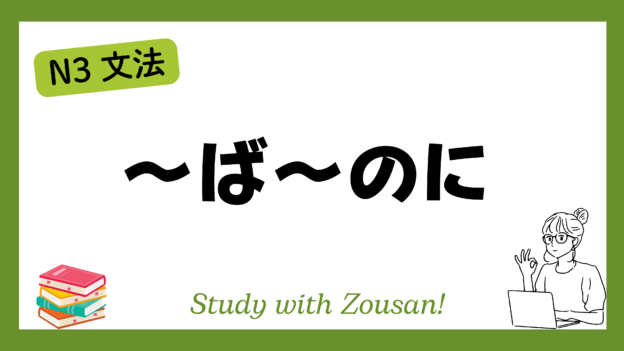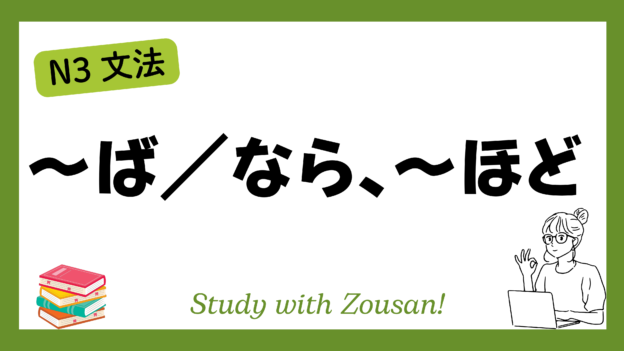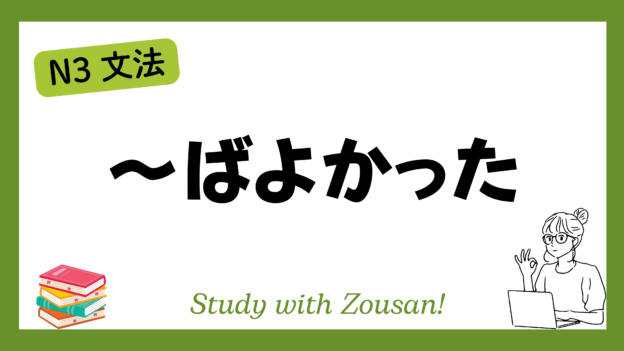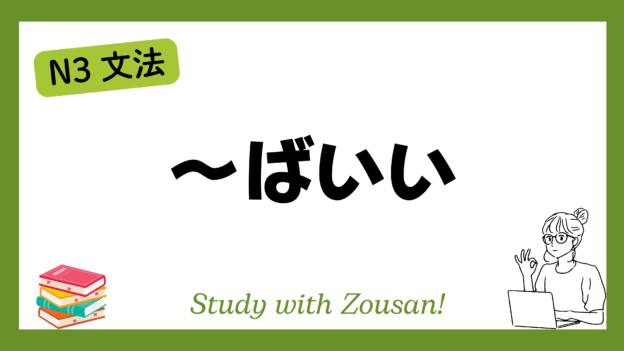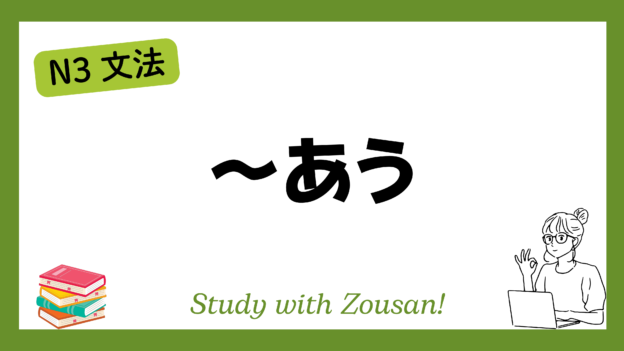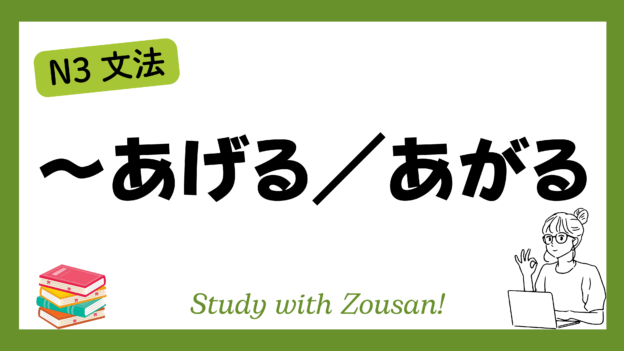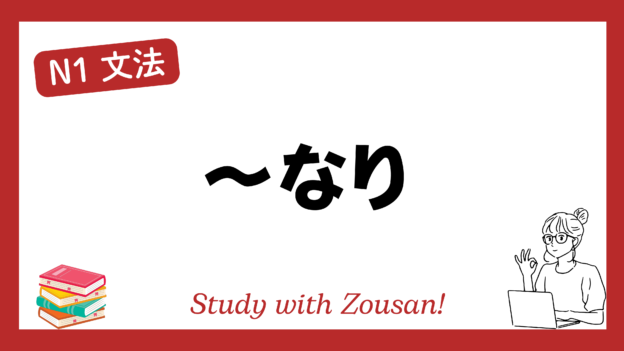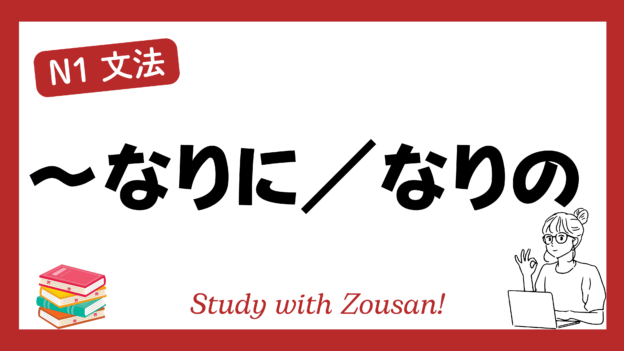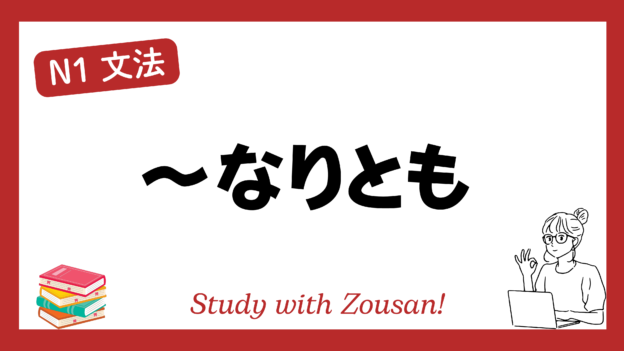Meaning: “If only…”, “If…, then…”
This structure is used to express regret or disappointment about something that didn’t happen but could have led to a better outcome. It implies that if the condition had been met, the result would have been different, often better. This is typically used to express missed opportunities or hypothetical situations.
※Note: “~ば~のに” conveys a sense of “what could have been” and is used when looking back on past events with a feeling of regret or wishing things had gone differently.
Structure:
| Verb (conditional form) | + clause + のに |
| Noun + なら | |
| な-adjective + なら | |
| い-adjective + |
Example:
-
-
-
🌟 もっと早く寝ればよかったのに。
(もっと はやく ねれば よかった のに。)
If only I had gone to bed earlier. -
🌟 雨が降らなければ、ピクニックに行けたのに。
(あめ が ふらなければ、ピクニック に いけた のに。)
If it hadn’t rained, we could have gone on a picnic. -
🌟 もっと一生懸命勉強すれば、試験に合格できたのに。
(もっと いっしょうけんめい べんきょう すれば、しけん に ごうかく できた のに。)
If only I had studied harder, I could have passed the exam. -
🌟 彼に電話していれば、彼も来たのに。
(かれ に でんわ して いれば、かれ も きた のに。)
If I had called him, he would have come too. -
🌟 時間があれば、手伝ってあげられたのに。
(じかん が あれば、てつだって あげられた のに。)
If I had more time, I could have helped you. -
🌟 もっと早く教えてくれれば、準備ができたのに。
(もっと はやく おしえて くれれば、じゅんび が できた のに。)
If you had told me earlier, I could have prepared. -
🌟 そのイベントに行けたら、楽しかったのに。
(その イベント に いけたら、たのしかった のに。)
If I could have gone to the event, it would have been fun. -
🌟 もっとお金があれば、新しい車を買ったのに。
(もっと おかね が あれば、あたらしい くるま を かった のに。)
If I had more money, I would have bought a new car. -
🌟 彼が手伝ってくれたら、早く終わったのに。
(かれ が てつだって くれたら、はやく おわった のに。)
If he had helped, we would have finished sooner. -
🌟 彼女がいたら、もっと楽しかったのに。
(かのじょ が いたら、もっと たのしかった のに。)
If she had been there, it would have been more fun.
-
-


